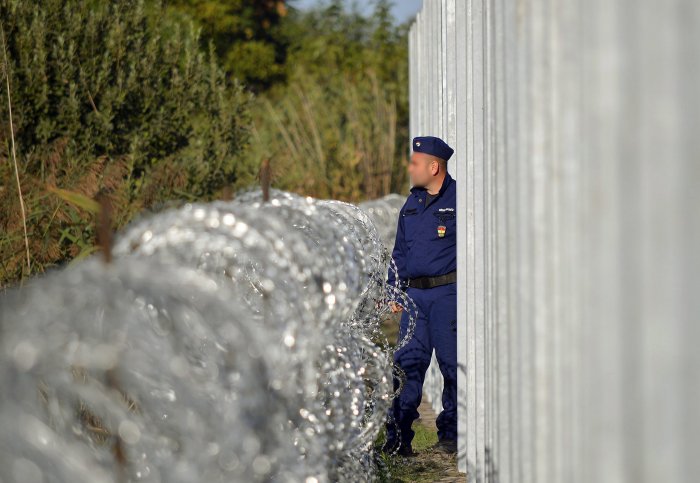Don’t let the Curfew Grind you Down

How did you spend your final day before the tightened lockdown curfew came into force? In my case I went to the gym and an appointment with my personal trainer. Not, as it happens, because I particularly like going to the gym; I have found it is the best way of keeping my aging, creaking body in some kind of shape, with everything more or less pointing in the right direction and moving in the right way. For the next 30 days I shall have to try and find some other means, alongside my morning constitutional with the dogs.
Monday (November 9) was the 28th anniversary of the day in 1992 when the very first issue of the Budapest Business Journal hit the streets, and it just so happened I was exchanging emails with Stephen A. O’Connor, a name that will be known to many of you, as he was there at the beginning and went on to become the newspaper’s publisher. When I told him of the new circumstances, he was typically forthright. “Here in Atlanta if feels like it’s totally past [...] everything is open. I think the whole thing [is] overblown government overreach.”
Sadly, it is what it is. My wife and I are just grateful two of our three children are still in school. I have no concerns about my eldest moving back into the digital classroom: she seems relaxed about it and is more than self-sufficient enough to cope and keep up with her studies. The real concern was the two younger ones.
The kids being at home in the spring meant we had to be there, too. Not only did they miss the social interaction of being in a stimulating environment surrounded by their friends, but they also had to put up with parents juggling their own work pressures with teaching, a profession at which neither of us would claim to be proficient (even if my father was a headmaster, and at least the fourth generation of his family to be involved in education).
For now, it would seem the aim in Hungary and in so many other parts of Europe is to keep kindergartens and schools, at least for the younger children, open for as long as possible. It appears governments have learned the lessons (if you will pardon the pun) from Lockdown 1.0. There was a truly shocking report published in Britain this week by schools’ watchdog Ofsted (the Office for Standards in Education, Children’s Services and Skills) that found the children hardest hit by COVID-19 measures have regressed during the pandemic, with some forgetting basic numbers or how to use a knife and fork. Older children have lost physical fitness as well as reading and writing skills, and some show signs of mental distress, with increases seen in eating disorders and even self-harm, Ofsted found.
I’m not for a moment suggesting that is widespread, or in any way applicable to my own children. I have seen no comparable study in Hungary, but this country is not without its poor or socially disadvantaged and there are sure to be some similar victims of lockdown among them.
One final thought: Lockdown has had such a profound effect on people all around the globe that Collins Dictionary has chosen it as its annual Word of the Year. Others to make the short list include pandemic, coronavirus, social distancing, self-isolation, furlough and key workers. Non-COVID-related words on the list include BLM (Black Lives Matter) and TikToker. It’s been quite the year, hasn’t it?
Stay safe, and keep well.
Robin Marshall
Editor-in-chief
SUPPORT THE BUDAPEST BUSINESS JOURNAL
Producing journalism that is worthy of the name is a costly business. For 27 years, the publishers, editors and reporters of the Budapest Business Journal have striven to bring you business news that works, information that you can trust, that is factual, accurate and presented without fear or favor.
Newspaper organizations across the globe have struggled to find a business model that allows them to continue to excel, without compromising their ability to perform. Most recently, some have experimented with the idea of involving their most important stakeholders, their readers.
We would like to offer that same opportunity to our readers. We would like to invite you to help us deliver the quality business journalism you require. Hit our Support the BBJ button and you can choose the how much and how often you send us your contributions.


.png)







.png)
